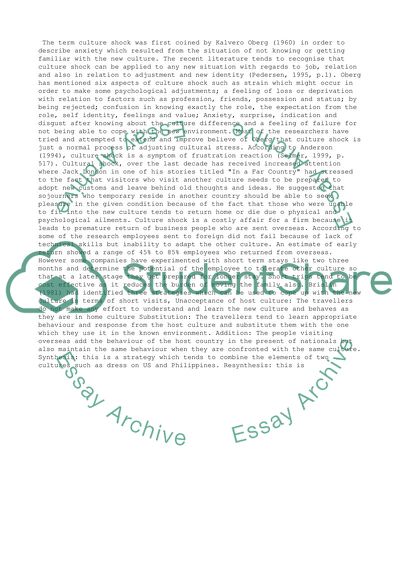Cite this document
(“Literature Review on Culture Shock and Poor Adjustment Essay”, n.d.)
Retrieved from https://studentshare.org/business/1402451-managing-across-cultures
Retrieved from https://studentshare.org/business/1402451-managing-across-cultures
(Literature Review on Culture Shock and Poor Adjustment Essay)
https://studentshare.org/business/1402451-managing-across-cultures.
https://studentshare.org/business/1402451-managing-across-cultures.
“Literature Review on Culture Shock and Poor Adjustment Essay”, n.d. https://studentshare.org/business/1402451-managing-across-cultures.


